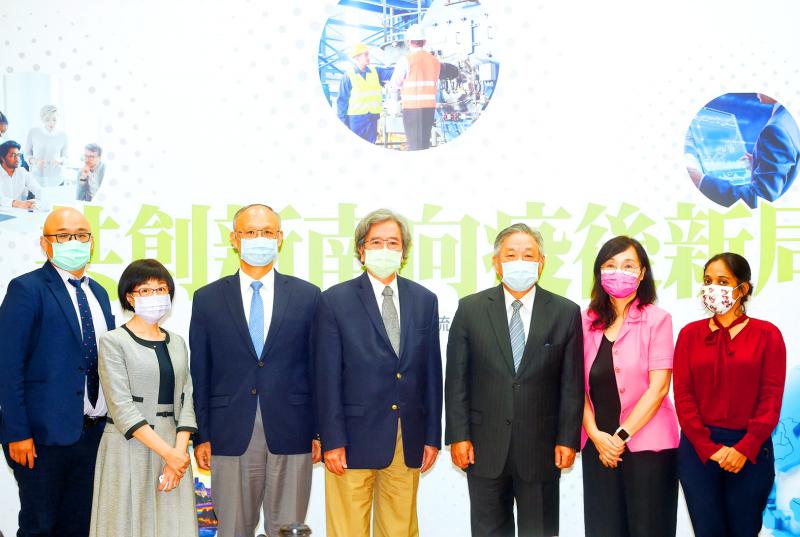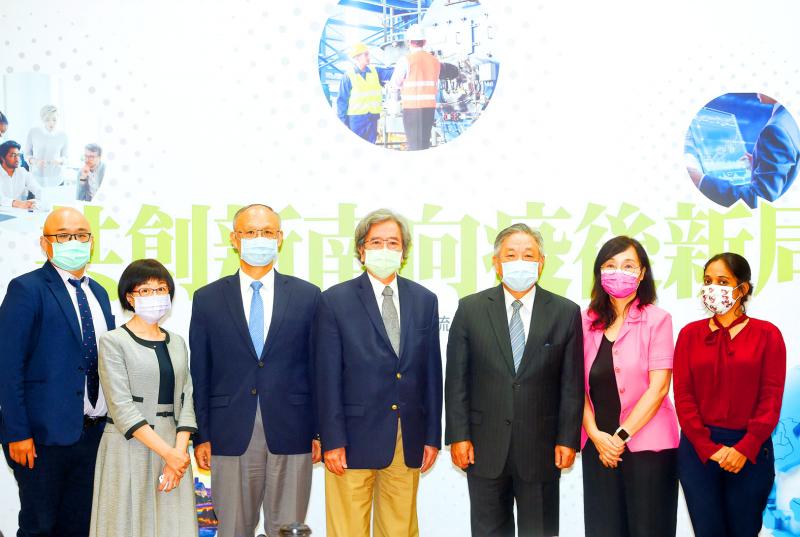
A forum in Taipei on Friday discussed the future of the nation’s New Southbound Policy in a post-COVID-19 world.
The policy, introduced in 2016, aims to boost interactions between Taiwan, ASEAN and South Asian nations in human resources, industry, investment, education, culture, tourism and agriculture.
Taiwan should find ways to enhance its strategic importance in the Indo-Pacific region, in addition to attracting economic investment and encouraging talent exchanges, Deputy Minister of Foreign Affairs Tien Chung-kwang (田中光) told the forum, which was initiated by the Taiwan-Asia Exchange Foundation and hosted by the Chinese-language Liberty Times (sister newspaper of the Taipei Times).
The New Southbound Policy should be more compatible with policies enacted by other countries in the region, especially as the international community turns its attention toward the Indo-Pacific region amid growing concern about stability in the Taiwan Strait area, he said.
ASEAN policies are focused on strengthening its bloc, while Taiwan’s regional policies are geared more toward trade, education and fostering talent, Tien said, adding that it is perhaps time for Taiwan to discuss how to broaden its scope and view in the region.
Citing how the Quadrilateral Security Dialogue in March included climate change, vaccines and emerging technologies, he said that regional policies should not become overly focused on military issues.
“It is of utmost importance that Taiwan’s New Southbound Policy find ways to connect with this trend,” Tien said.
One option is to expand Taiwan’s Global Cooperation and Training Framework collaboration with the US and Japan, he said.
Taiwan has worked with the US under the framework since 2015, holding more than 30 international seminars in fields such as public health, law enforcement, disaster relief, energy cooperation, women’s empowerment, the digital economy, cybersecurity and media literacy, attracting 2,500 attendees from more than 90 countries, he said.
Such fields correspond with the government’s New Southbound Policy, he added.
Minister Without Portfolio John Deng (鄧振中) said that Taiwan could attract students from the 18 countries included in the policy, to mitigate the impact of the nation’s declining birthrate.
The Ministry of Health and Welfare’s relaxation of regulations for the medical industry could also lead to growth, especially with innovations in telemedicine, he said.
Taiwan should also step up its investments in Southeast Asia to benefit from the reorganization of the global supply chain, he said.
Non-governmental organizations such as the Taiwan-Asia Exchange Foundation can play a role in the policy’s influence, as foundations have a wider reach than the government, Deng said.
Foundation chairman Michael Hsiao (蕭新煌), who is also a presidential adviser, said that government units and the private sector, led by the foundation, should meet at the end of this year to discuss a new direction for the policy.

From left, Taiwan-Asia Exchange Foundation (TAEF) executive director Alan Yang, Taiwan External Trade Development Council president and CEO Leonor Lin, Minister Without Portfolio John Deng, TAEF chairman Michael Hsiao, Deputy Minister of Foreign Affairs Tien Chung-kwang, Liberty Times editor-in-chief Tzou Jiing-wen and TAEF visiting fellow Sana Hashmi pose for a photograph at a forum on the New Southbound Policy in Taipei on Friday.
- By Lu Yi-hsuan, Lin Ching-hua and Jake Chung / Staff reporters, with staff writer; reprinted with permission from Taipei Times.
- Original title: Southbound Policy options discussed
- Link: https://www.taipeitimes.com/Ne...
